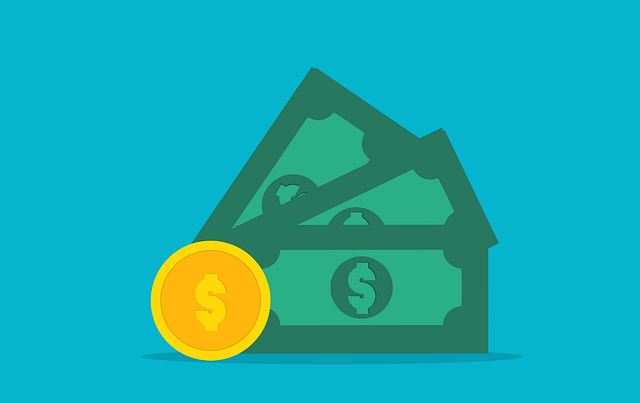TL;DR:
Consolidating credit card debt is a strategic approach to financial stability, simplifying high-interest payments and potentially saving money. It involves combining multiple debts into a single loan with lower interest rates, reducing risk and speeding up debt repayment. Credit score impacts loan availability; scores below 600 may require specialized lenders offering adjustable rates or secured loans. To secure bad credit consolidation, improve financial health through punctual bill payments, reduced credit utilization, and maintaining old accounts. First, consolidate smaller debts to show effective management, create a detailed budget, and practice responsible spending to attract lenders. Research competitive interest rates and terms for long-term savings when consolidating credit card debt.
Struggling with multiple high-interest credit card debts? Bad credit debt consolidation loans could be a solution. This article guides you through understanding and accessing these loans, highlighting the eligibility criteria crucial for approval. We break down who qualifies, key requirements, the role of credit scores, and practical tips to improve your chances. Learn how consolidating credit card debt can simplify repayment and save you money in today’s financial landscape.
- Understanding Bad Credit Debt Consolidation Loans
- Who is Eligible for These Loans?
- Key Requirements for Qualification
- The Impact of Credit Score on Loan Offerings
- How to Improve Your Chances of Approval
Understanding Bad Credit Debt Consolidation Loans
Bad credit debt consolidation loans are designed to help individuals with low or poor credit scores manage their debt by combining multiple high-interest debts into a single loan with potentially lower interest rates and more flexible terms. This approach, known as consolidating credit card debt, aims to simplify repayment, reduce monthly payments, and save money on interest charges. By bundling various debts, borrowers can navigate the complexities of managing multiple creditors and payment schedules, streamlining their financial obligations.
When considering a bad credit debt consolidation loan, it’s crucial to understand that lenders will evaluate your creditworthiness based on factors such as income, outstanding debt, and credit history. Lenders often look beyond just credit scores to assess the potential risk associated with lending money to borrowers with poor credit. Demonstrating stable income and a plan for repayment can significantly improve your chances of securing a consolidation loan at reasonable terms, enabling you to take control of your finances and move towards becoming debt-free more efficiently.
Who is Eligible for These Loans?
Key Requirements for Qualification
The Impact of Credit Score on Loan Offerings
When considering a bad credit debt consolidation loan, your credit score plays a pivotal role in shaping the terms and availability of loan offers. Lenders typically assess your creditworthiness based on this key metric, which reflects your historical borrowing and repayment behavior. A lower credit score often results in less favorable loan conditions, such as higher interest rates and more stringent repayment terms. This is because lenders perceive borrowers with poor credit as higher risks, potentially leading to default or delayed payments.
For individuals aiming to consolidate credit card debt, a credit score below 600 can make it challenging to secure a traditional loan. However, there are specialized lenders who cater to this demographic, offering subprime loans with adaptable terms. These options may include adjustable interest rates, flexible repayment periods, or even secured loan varieties, where you provide collateral to mitigate the lender’s risk. While these solutions can help in debt consolidation, it’s crucial to carefully evaluate the overall cost and long-term implications to ensure a successful financial turnaround.
How to Improve Your Chances of Approval
To improve your chances of approval for a bad credit debt consolidation loan, start by making some proactive changes to your financial situation. One key step is to begin rebuilding your credit score. This involves paying your bills on time, reducing high credit utilizations, and keeping old accounts open to demonstrate responsible management over time. Additionally, consider consolidating smaller debts first to show lenders that you can effectively manage debt.
Additionally, prepare a detailed budget to understand your cash flow better. Lenders want to see that you have the means to make consistent payments. Demonstrating financial responsibility through responsible spending and savings will boost your application’s strength. When applying for consolidation loans, shop around for competitive interest rates and terms, as these will directly impact your long-term savings when consolidating credit card debt.
When considering a bad credit debt consolidation loan, understanding the eligibility criteria is key. By meeting certain requirements, such as demonstrating a stable income and providing accurate financial disclosures, individuals with less-than-perfect credit can increase their chances of securing favorable loan terms. Credit score impact plays a significant role, but it’s not the sole determiner; lenders assess each application holistically. To improve approval odds, borrowers should focus on improving their credit profiles, making timely payments, and keeping debt levels low. By following these guidelines, individuals can take control of their finances and explore consolidating their credit card debt effectively.
